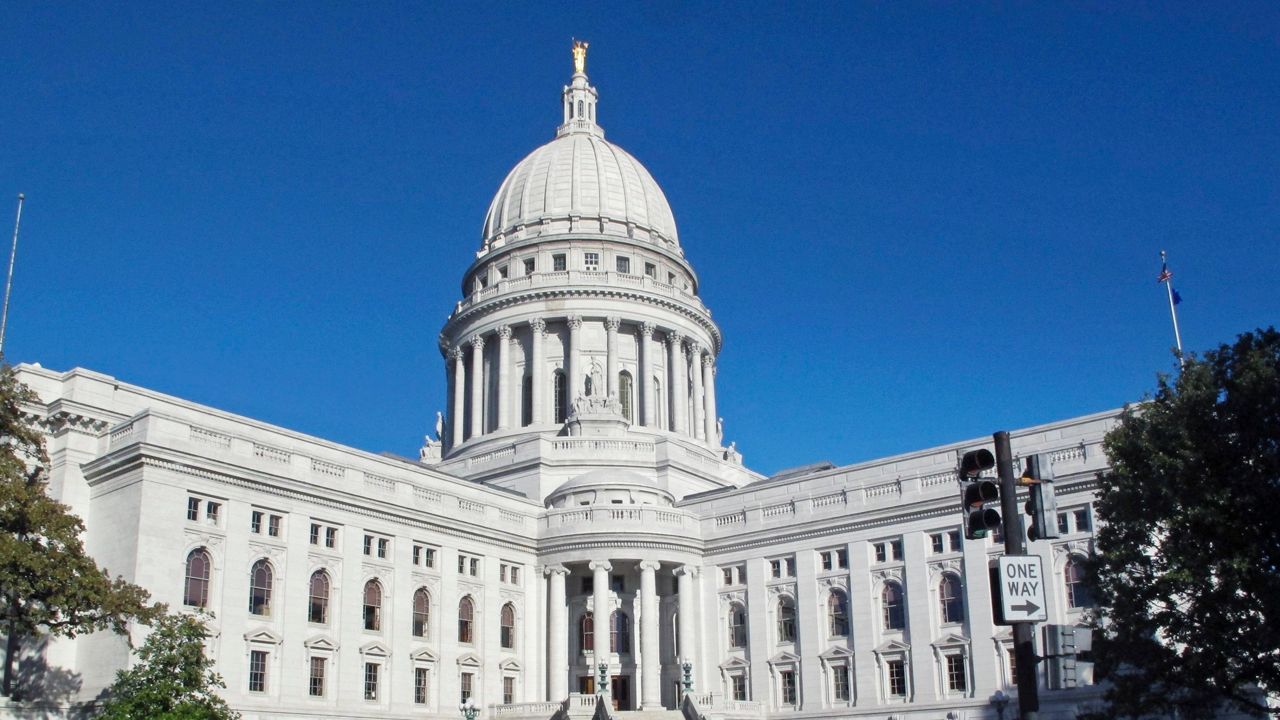MADISON, Wis. (AP) — Wisconsin Senate and Assembly Republicans are at odds over a key ingredient of a proposal long sought after by local governments, first responders and others that would significantly boost state aid to pay for essential services.
The Assembly passed a wide-ranging bill Wednesday, following months of closed-door negotiations, that would increase aid at least 15% for all local governments in the state and give Milwaukee city and county the ability to raise additional revenues if voters approve higher sales taxes. Milwaukee city and county leaders oppose that provision, which appears to also be a sticking point between Assembly and Senate Republicans.
But Republican Senate Majority Leader Devin LeMahieu said Thursday that the Senate will likely remove that provision, and make other unspecified changes, when it votes on the bill, likely in early June.
The Senate and Assembly must approve the same bill before it would go to Democratic Gov. Tony Evers, who on Wednesday said he was confident that a bipartisan compromise could be reached.
But Vos told The Associated Press that the Assembly would not pass a bill that does away with the vote requirement for Milwaukee.
“That could unfortunately kill the bill and all of our good work,” Vos said. “Requiring voter approval for enacting a new tax, which was included in the original Evers proposal, should not be all that controversial.”
Vos said on Wednesday he was “done negotiating” on the bill.
LeMahieu said at a news conference Thursday he had “no idea” that Vos would say he's done negotiating.
“That's unfortunate that he’s drawing a line in the sand now with this version of the bill and stopping negotiations on a bill that not everybody’s in agreement on,” LeMahieu said.
LeMahieu said that he supported having the local governing boards approve a sales tax increase because he thinks a referendum vote of the people would fail.
Evers spokesperson Britt Cudaback said the governor now supports allowing the Milwaukee County Board and the Milwaukee Common Council to vote on whether to raise taxes and looks forward to continuing negotiations. His original proposal would have allowed for all counties and cities with more than 30,000 people to raise property taxes with voter approval.
The pending bill boosts aid by at least 15% for every town, village, city and county in the state except Milwaukee.
Milwaukee Mayor Cavalier Johnson is withholding comment as negotiations continue, said his spokesperson Jeff Fleming. Milwaukee County Executive David Crowley declined to comment. The two have been lobbying to remove the local vote requirement, arguing that giving them enough money to avoid bankruptcy was too important to put at risk with a vote of the people. They instead want the local governing boards to determine when and how much to raise sales taxes.
Wisconsin’s local governments have clamored for years for more state aid to help cover basic services, including police and fire protection, after decades of frozen funding and cuts.
Under the bill, $1.5 billion in aid to municipalities — known as shared revenue — would be paid for by tapping 20% of the state’s 5-cent sales tax, an idea Evers has supported. Aid would then grow along with sales tax revenue.
The bill would increase funding to counties, cities, towns and villages by $261 million — at least a 15% increase for everyone — over the next two years, but that could only be spent on police and fire protection, emergency medical services, emergency response communications, public works and transportation. The city and county of Milwaukee would see a 10% increase, but could ask voters for more.
Under the bill, Milwaukee could levy a 2% sales tax, and Milwaukee County could add 0.375% sales tax to its current 0.5% sales tax.
The shared revenue program to fund local governments, created in 1911, has remained nearly unchanged for almost 30 years, despite overall growth in tax revenues. Shared revenue for counties and municipalities was cut in 2004, 2010 and 2012 and since then has been relatively flat.



